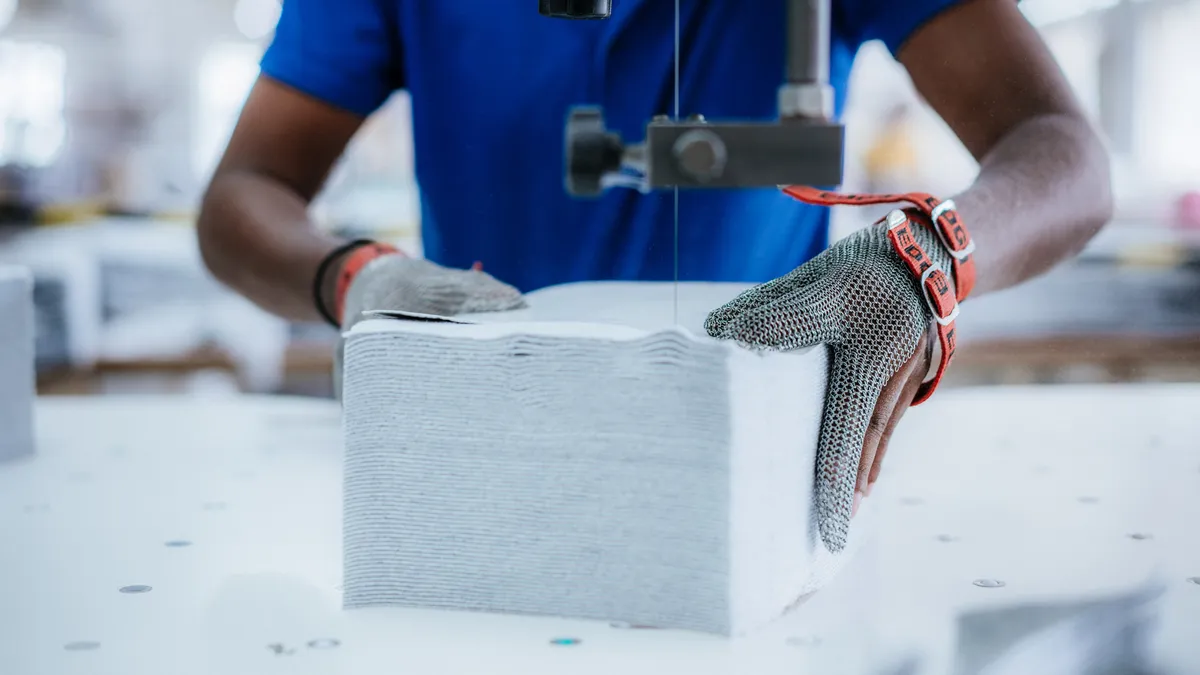Dive Brief:
- A new joint project is using artificial intelligence and satellite imagery to monitor cotton fields and certify the product’s cultivation is organic and ethical.
- The remote monitoring of the fields, done in partnership by the Global Organic Textile Standard, European Space Agency and artificial intelligence company Marple, would allow farms already using traditional, ecologically friendly farming methods to be identified as having the potential to join the organic textile market.
- Project leaders say that as more fashion companies look to meet the growing consumer demand for organic materials, the new partnership could increase the number of cotton farms certified for these practices.
Dive Insight:
GOTS is a German nonprofit organization that certifies the processing and trade of the textile supply chain based on manufacturer’ ecology and social responsibility.
The nonprofit will work using AI technology from Germany-based Marple, incorporating satellite data from the ESA, to detect cotton fields and automatically classify them according to GOTS cultivation standards.
“The fashion industry is at a pivotal moment, recognizing the need to transform its practices for the sake of our planet, the people behind its supply chain and consumers,” Jeffrey Thimm, project manager at GOTS said in an email. “As one of fashion’s most common fabrics, committing to only using certified organic cotton is a crucial part of that.”
The GOTS certification system defines organic as containing a minimum of 70% certified organic fibers, which it defines as fibers grown without use of synthetic pesticides, herbicides or GMOs.
The project aims for more farmers to become certified for participation in the global organic textile market.
“This would enable GOTS to invite a greater number of farms – particularly those of a smaller size – into the certified organic sector, helping to increase the availability of organic cotton that the fashion industry can use to help reach its climate goals and meet growing consumer demand for organic cotton,” Thimm said.
The project will run across India and the first results are expected by the end of this year. It builds on a feasibility pilot launched in Uzbekistan in 2021.
Cotton has been the material at the center of many material concerns in the fashion industry. A recent report from nonprofit human rights organization Walk Free found that some cotton production has ties to modern slavery. In the United States, lawmakers have questioned fashion companies over their cotton sourcing to ensure forced labor wasn’t used












